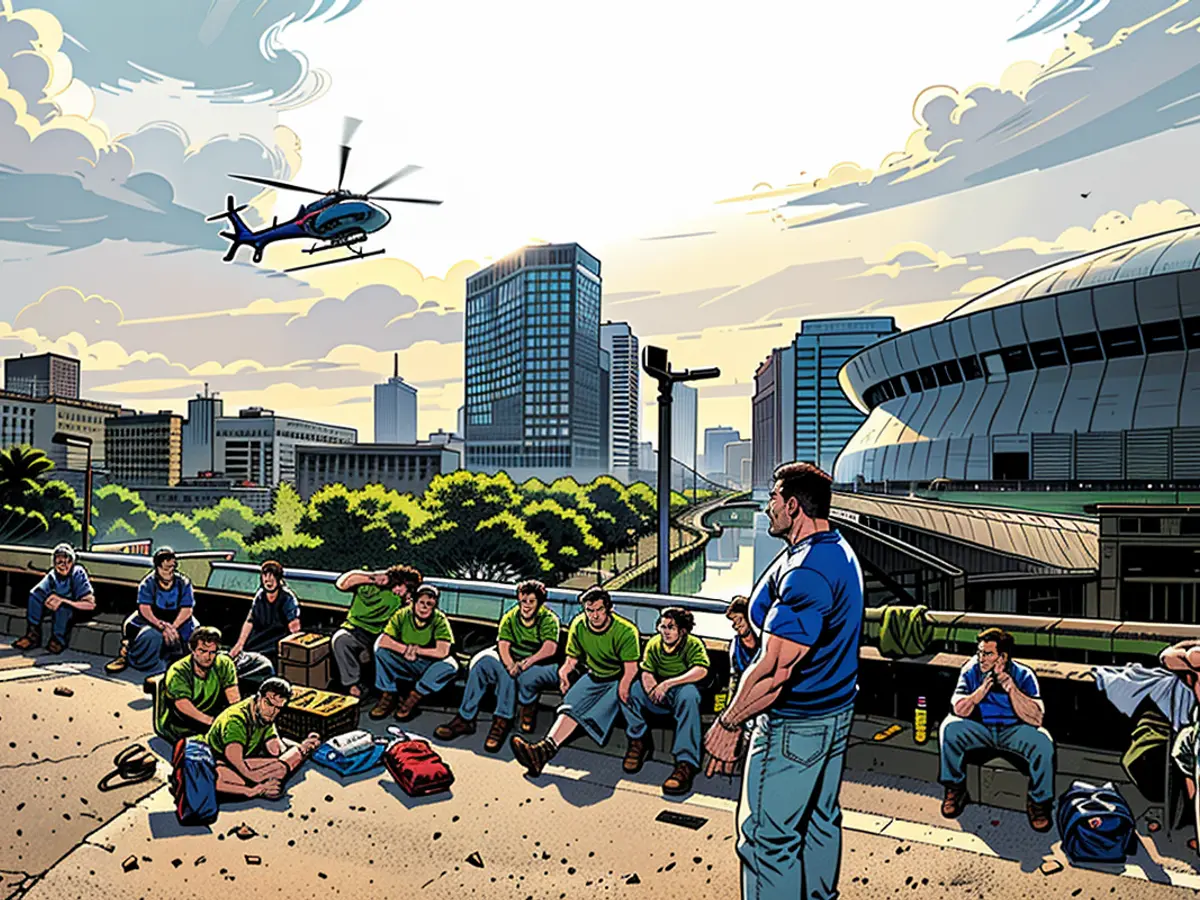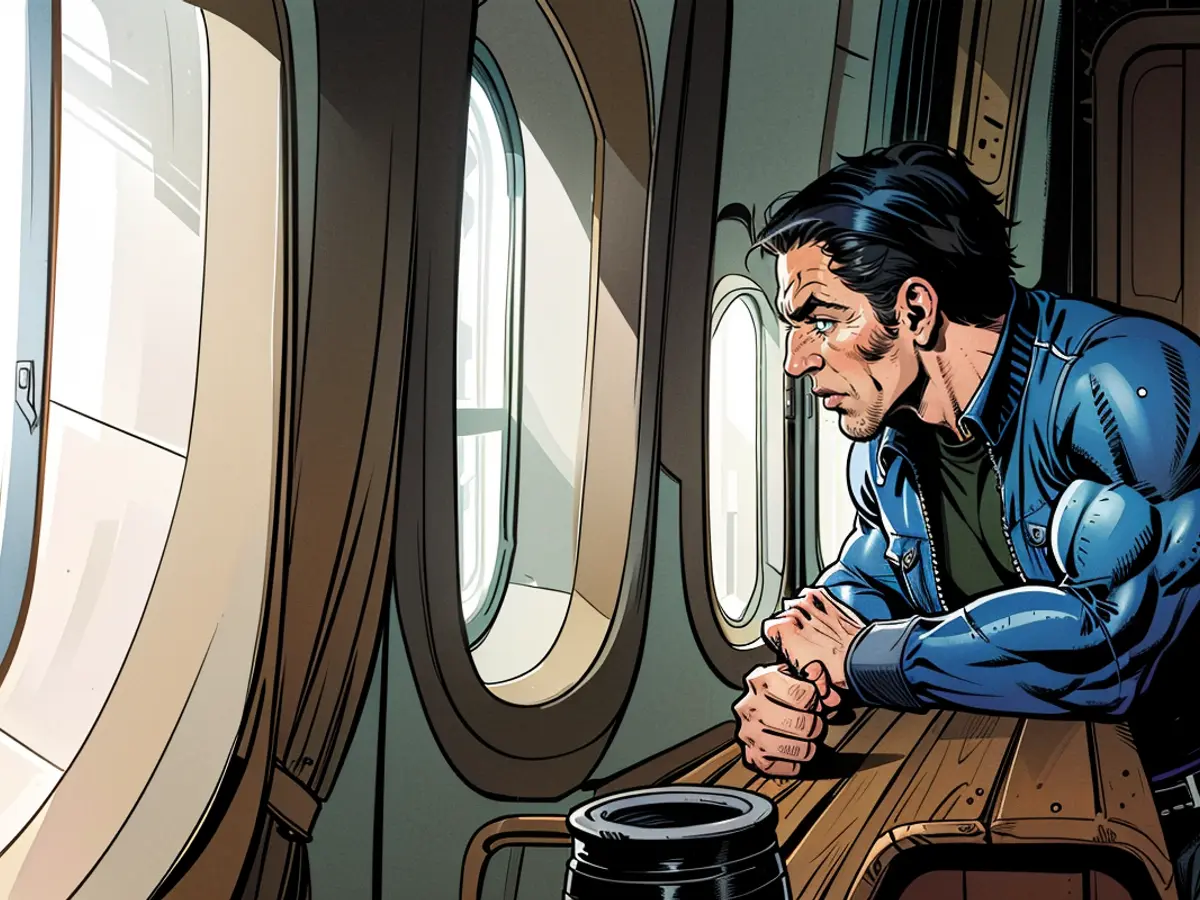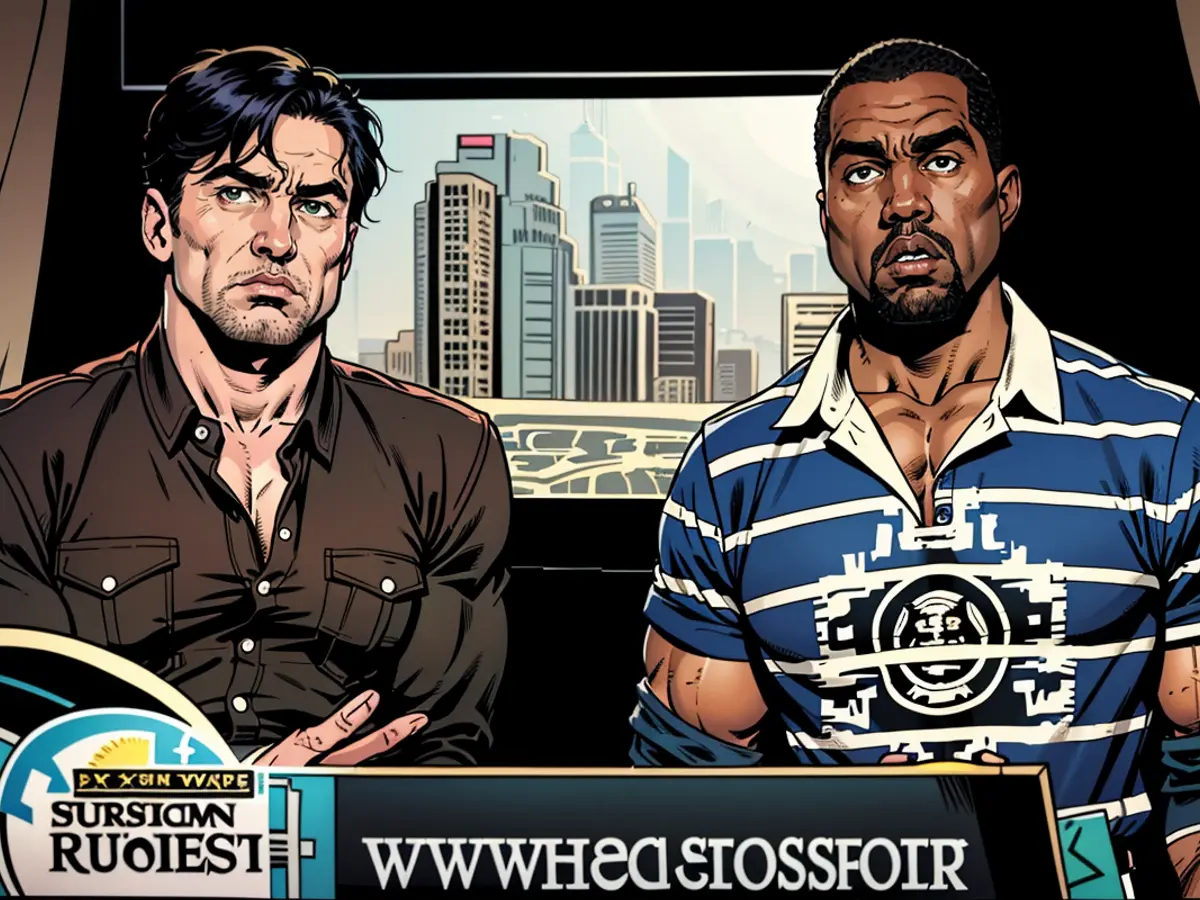The Impact of Hurricane Katrina and an Impromptu Statement by Kanye West on Societal Shifts
"I can't stand how the media represents us. If you see a Black family, they're labeled as looters. If it's a White family, they're just looking for supplies," Kanye West blurted out during NBC's "Concert for Hurricane Relief" telethon in September 2005, following hurricane Katrina.
"George Bush doesn't like Black people," West added.
These statements echoed the frustration of many who felt the response to Katrina's devastating impact - the deadliest hurricane to hit the US mainland in half a century - was blatantly inadequate and unfair, particularly affecting people of color or those in economically disadvantaged areas.
Hurricane Katrina hit the Gulf Coast in August 2005, leaving a path of destruction from New Orleans to Biloxi with severe flooding damage. New Orleans was hit the hardest, with the city submerged after the levees and floodwalls failed, resulting in countless losses and catastrophic damage. According to the National Oceanic and Atmospheric Administration (NOAA), the damage caused by Katrina exceeded $125 billion.
More than 25,000 storm evacuees sought shelter at the Louisiana Superdome, only to endure unsafe conditions due to wind and water damage. Despite these challenges, the massive scale of the disaster led to breakdowns in basic supplies before the venue was eventually evacuated.
At the time, President George W. Bush faced criticism due to a photo of him observing the damage from the windows of Air Force One and the delayed government response in providing aid to affected areas.
"It made you question whether your government was working for you," Van Lathan, co-host of the "Higher Learning" podcast, told CNN. "It made you question whether you were an American."
West's controversial comments received mixed reactions.
Years after leaving office, Bush disagreed with West's statements in an interview with NBC.

"It wasn't true and it's one of the most disgraceful moments of my presidency," Bush said in 2010.
Van Jones, a CNN contributor, described West's telethon moment as a significant step in paving the way for the Black Lives Matter movement.
"It was a cathartic moment, signifying a new generation that was willing to speak truthfully," Jones said.
Comedian and actor Mike Myers, who shared the stage with West during the telethon, had no idea about West's planned comments in advance. Myers said in a 2014 interview that he felt proud to stand beside West in that moment.
"Someone stood up to authority at a time when it was needed," Myers said.
Of course, these events occurred long before West's entry into other political controversies, and subsequent remarks criticized as antisemitic and anti-Black received widespread backlash.
"This moment shouldn't just be about Kanye West and President Bush," CNN Entertainment Correspondent Lisa Respers France said in Sunday's episode. "This moment should be a reminder of the devastating impact of Katrina on the New Orleans community and the lives lost and disrupted."
The telethon event provided a platform for various forms of entertainment, with performances and speeches aimed at raising funds and awareness for hurricane relief.
Despite the challenges faced by the evacuees at the Louisiana Superdome, the moment when Kanye West challenged the government's response to Katrina became a significant instance of entertainment serving as a vehicle for social commentary.








